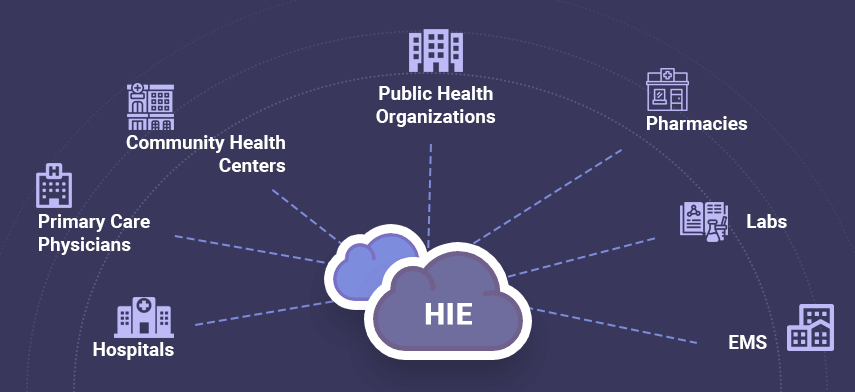Healthcare Information Exchange – Why it’s Important to Healthcare Providers and How the Government is Promoting It
Healthcare information exchange (HIE) is the electronic sharing of health-related information among healthcare organizations. It allows healthcare providers to securely share electronic health information (EHI) with each other. This can include patient demographics, medical history, test results, and prescription information. Here is the importance of HIE to healthcare providers.
HIEs can be used to improve the quality of care by ensuring that providers have access to the most up-to-date information about their patients. They can also be used to reduce costs by eliminating the need for duplicate testing and by improving coordination of care.
There are a number of different types of HIE, including:
- Regional HIE: A regional HIE connects healthcare providers within a specific geographic area.
- State HIE: A state HIE connects healthcare providers within a specific state.
- National HIE: A national HIE connects healthcare providers across the country.
HIEs can be either public or private. Public HIE are funded by the government and are available to all healthcare providers. Private HIE are funded by private companies and are typically only available to providers who are members of the HIE.
The benefits of HIE include:
- Improved quality of care: HIE can improve the quality of care by ensuring that providers have access to the most up-to-date information about their patients. This can help to prevent medical errors and improve patient outcomes.
- Increased patient satisfaction: HIE can increase patient satisfaction by making it easier for patients to access their medical records and to communicate with their providers.
- Prevent medical errors: By ensuring that providers have access to the most up-to-date information about their patients, HIE can help to prevent medical errors, such as prescribing the wrong medication or providing the wrong treatment.
- Improve patient care: HIE can help to improve patient care by ensuring that providers have a complete understanding of a patient’s medical history. This can help providers to make better decisions about treatment and to avoid duplicating tests.
- Reduce costs: HIE can help to reduce costs by eliminating the need for duplicate testing and by improving coordination of care. For example, if a patient sees multiple providers, HIE can help to ensure that all of the providers have access to the same information. This can help to avoid confusion and to ensure that the patient receives the most appropriate care.
The government is promoting HIE through a number of initiatives, including:
- The HITECH Act: The HITECH Act, which was passed in 2009, provides financial incentives to healthcare organizations that implement HIE.
- The Office of the National Coordinator for Health Information Technology (ONC): The ONC is a federal agency that is responsible for coordinating the development and adoption of HIE. The ONC has developed a number of programs and initiatives to promote HIE, including the Nationwide Health Information Network (NHIN).
Despite the government’s efforts, HIE is still not widespread in the United States. There are a number of challenges to HIE, including:
- Technical challenges: HIE can be technically challenging to implement and maintain.
- Privacy and security concerns: HIE raise privacy and security concerns.
- Financial challenges: HIE can be expensive to implement and maintain.
Despite the challenges, HIE are a valuable tool that can improve the quality, efficiency, and cost-effectiveness of healthcare. As HIE technology continues to evolve, it is likely that HIE will become more widespread and will have an even greater impact on the healthcare system.
We at Sollers Infotech specialize in developing custom healthcare solutions, contact us for your healthcare software requirements.





